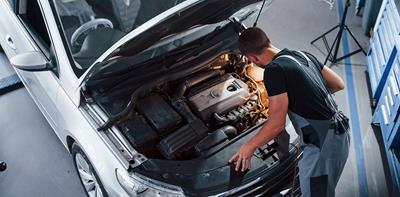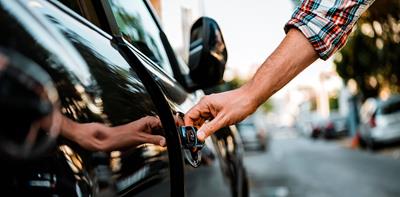
When shopping for a new or used car, it’s important to find out as much information as possible about the vehicle, to ensure you get a good deal and a reliable set of wheels.
So, whether you’re buying privately or from a dealership, take the opportunity to ask the seller or salesperson some questions.
Here are some key questions to ask when buying a car.
How many owners has the car had?
The number of previous owners can affect how much a car is worth[1]. So, it’s a good idea to ask the dealer.
You can also check the number of previous owners on the car’s log book or V5C registration, if you’re able to see it before you buy.
Can I see the paperwork?
Before buying a car, you can ask to see all of the paperwork, including the registration document, also known as V5C or log book, which holds details of the car and the person or company it’s registered to. Other essentials to ask for include a valid MOT certificate and a full service history.
If there are any gaps in the MOT history, then ask why. If you’re unable to get answers, that could be an indicator that it’s best to walk away and look for another vehicle.
You can use the DVLA’s free online vehicle information tool to make sure the information you receive matches the car’s official records.
Has the car passed a history check?
If you’re buying through a dealership, the dealer should have put the car through a vehicle history check before listing it for sale. This will have shown whether if it has ever been reported as stolen, listed as a write-off or if it has outstanding finance owed on it.
A private seller should also be familiar with the car’s history and be able to answer any questions you may have, as the vehicle’s owner.
If the car’s been written off, then it may not be legal to sell it[2].
Does the car have unpaid finance?
If you’re buying a used car, then you need to check if the previous owner still has finance to pay on the car.
If you’re buying from a dealer, ask if they have checked this. If you’re buying privately, ask the seller to confirm if the car has been paid in full. Also, you can run your own checks online, using tools like the one provided by the RAC.
If you discover outstanding finance before buying a car, check with the finance company whether payments are still due. If this is the case, then ask the owner to settle the account before you go any further with the purchase[3]. If payment isn’t settled before you buy the car, then there is a chance that the finance company could demand payments or the car back.
Can I test drive the car?
Whether you’re buying new or used, ask if you can test drive and take a look at the car.
If it’s a used car and any faults show up during the test drive, then ask the dealer or seller how and when they will be fixed before you seal the deal.
You could even ask if you could test drive a new car for an extended time or overnight, as some dealers and sellers may allow this.
How long does the warranty last and what does it cover?
Both new and used cars might come with a warranty, or you might have to pay for it, if you’d like.
So, ask the salesperson or seller about this and make sure you know exactly what the warranty will cover.
Can I part exchange my car?
Some dealers offer a discount on the price of a car if you are willing to part exchange your existing vehicle.
This can be convenient, if you’re buying through a dealership, as you won’t have to worry about selling your car privately. So, ask how much of a discount the dealer would offer for this.
Bear in mind that you might get more for your car by selling it privately. Read our guide on how to sell your old car.
How much discount will you give me?
Even if you don’t part exchange your car or are buying privately, it’s a good idea to try to haggle down the asking price when buying a vehicle. According to Money Advice Service research[4], nearly two thirds (64%) of those who tried to negotiate when buying a car were successful.
If you’re not sure how to get started, read our tips to get the best price at a car dealership.
What safety features or extras does the car have?
Whichever car you drive, it’s natural to be concerned about your safety and the safety of your passengers.
For example, you may want to prioritise a vehicle with AEB or autonomous emergency braking.
If you’d like a little help finding out which car is more safe than another, you can use the Euro New Car Assessment Programme (NCAP) crash test scores.
It’s also worth finding out what other extras it comes with. Bear in mind extras can add to the price, so be sure they’re features you really want and need, so you’re not paying over the odds.
What more can you give me?
Even if you’ve agreed a price, before signing on the dotted line, don’t be afraid to ask the dealer or seller if they can throw in something extra, like a full tank of fuel or some plush floor mats.
As well as asking all these questions, you should also do your homework before buying a used or new car. A little research and preparation can improve your chances of getting a great deal and driving home happy.
Go to Solved to read more about driving, the rules of the road and road safety.
[1] https://www.moneyadviceservice.org.uk/en/articles/car-depreciation-explained
[2] https://www.rac.co.uk/drive/advice/buying-and-selling-guides/can-i-sell-an-insurance-write-off-what-to-do-with-your-damaged-car/
[3] https://www.rac.co.uk/buying-a-car/rac-car-data-check/how-to-avoid-buying-a-car-with-outstanding-finance
[4] https://www.moneyadviceservice.org.uk/en/articles/how-to-negotiate-when-buying-a-car


